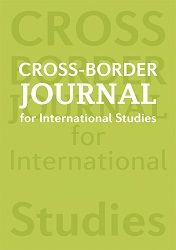Refugees’ Crisis – A New Challenge for the European Union Economy
Refugees’ Crisis – A New Challenge for the European Union Economy
Author(s): Romeo-Victor IonescuSubject(s): Economic policy, Welfare systems, Migration Studies
Published by: Editura “Tritonic Books” Bucuresti
Keywords: economic clusters; economic disparities; forecasting procedures; refugees’ crisis;
Summary/Abstract: The paper deals with the idea of analysing the impact of the refugees’ crisis on Cohesion Policy. In order to do this, the analysis is focused on three representative indicators: GDP growth rate, inflation rate and unemployment rate. The analysis approach is built on four levels: comparative analysis, regression in order to highlight the economic disparities, cluster analysis and forecasting procedures in order to quantify the economic evolution until 2020. According to the analysis in the paper, EU is not in the best economic position to finance the refugees’ crisis costs. Moreover, some Member States face to low economic development and support the idea of an EU with at least two economic development speeds. Germany will achieve the greatest advantages from this new crisis, while the less developed Member States will become net financial donors. The analysis and the conclusions in the paper are supported by the latest official statistical data and pertinent diagrams. The main conclusion of the paper is that EU will not be able to achieve its economic targets as a result of this new crisis.
Journal: Cross Border Journal for International Studies
- Issue Year: 1/2016
- Issue No: 1
- Page Range: 75-86
- Page Count: 12
- Language: English

